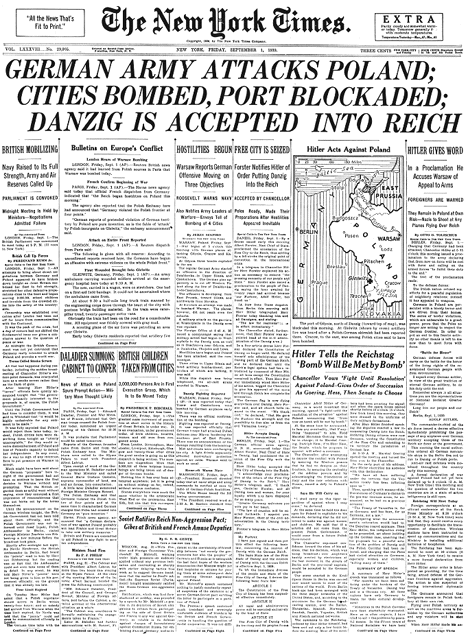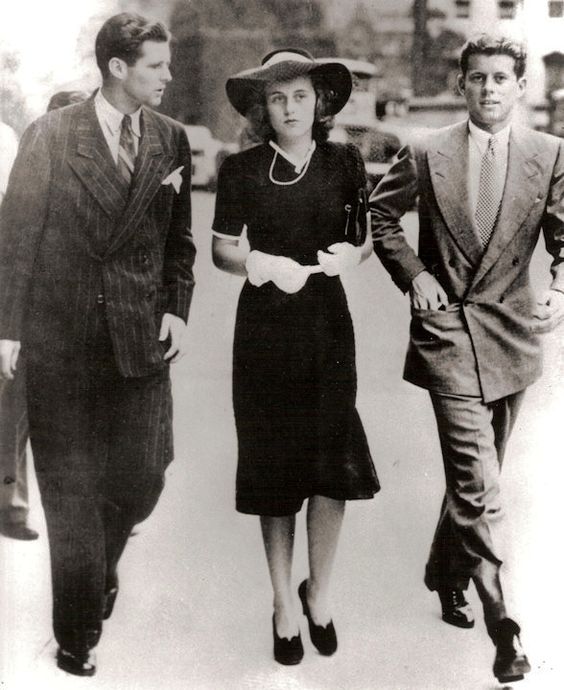Saturday 2 September 1939
 |
| Germany annexes Danzig. |
Italy, Diplomacy: In the morning, the Italian Ambassador to Germany, Count Bernardo Attolico, presents a proposal for a truce, to be followed by a conference. Italy has been acting as a diplomatic clearinghouse over central Europe for years but is known to favor Germany. The proposal, of course, hinges upon French/UK acceptance, as Germany desperately wants to delay or even prevent Allied intervention. Mussolini withdraws the proposal that afternoon due to Allied indifference. Italy declares neutrality.
Germany, Diplomacy: Ribbentrop invites British civil servant Sir Horace Wilson, a PM Chamberlain crony who has a room at 10 Downing Street, to Berlin for discussions. Wilson refuses and warns Ribbentrop that sentiment "in the House of Commons and in the Cabinet" strongly favors an immediate declaration of war. Hitler, dubiously encouraged by Ribbentrop who professes to have a superior understanding of British intentions, still believes a peaceful settlement is possible. Goering continues his attempts at unofficial diplomacy via the Swede Birger Dahlerus but gets nowhere despite repeated calls to Whitehall and visits to the British embassy.
England, Diplomacy: Shortly before midnight, the British ambassador to Germany Sir Nevile Henderson informs Ribbentrop to expect an ultimatum at 9 a.m. the following day.
England, military: The National Service (Armed Forces) Act 1939 is enacted immediately and enforces full conscription on all males between 18 and 41 who are residents in the UK.
Ireland, Diplomacy: President Douglas Hyde of the Republic of Ireland declares the neutrality of his nation;
Switzerland, military: the government orders a general mobilization of its forces.
Germany, military: German forces complete the annexation of the free city of Danzig, which is adjacent to East Prussia and has no hope of staying unoccupied. Many German troops in plainclothes have been waiting in the city. Most historians pinpoint the beginning of the war as the attack on the depot at Danzig (Westerplatte) the previous day. Light but determined resistance in the city's Polish Post Office is overcome. Elsewhere, German forces remain on the move, pointed toward Warsaw.
Naval War, Atlantic: The SS Athenia, commanded by Captain James Cook, leaves Liverpool for Montreal at 13:00 hours despite indications that war is imminent - there is no war declaration so far. The Athenia carries 1,103 passengers including about 500 Jewish refugees, 469 Canadians, 311 US citizens, 72 UK subjects, and 315 crew.
September 1939
September 1, 1939: Invasion of PolandSeptember 2, 1939: Danzig Annexed
September 3, 1939: France, Great Britain Declare War
September 4, 1939: First RAF Raid
September 5, 1939: The US Stays Out
September 6, 1939: Battle of Barking Creek
September 7, 1939: Polish HQ Bugs Out
September 8, 1939: War Crimes in Poland
September 9, 1939: The Empire Strikes Back
September 10, 1939: The Germans Break Out
September 11, 1939: Battle of Kałuszyn
September 12, 1939: The French Chicken Out
September 13, 1939: The Battle of Modlin
September 14, 1939: Germany Captures Gdynia
September 15, 1939: Warsaw Surrounded
September 16, 1939: Battle of Jaworów
September 17, 1939: Soviets Invade Poland
September 18, 1939: Lublin Falls
September 19, 1939: Germans, Soviets Hook Up
September 20, 1939: the Kraków Army Surrenders
September 21, 1939: Romania Convulses
September 22, 1939: Joint Soviet-German Military Parade
September 23, 1939: The Panama Conference
September 24, 1939: The Luftwaffe Bombs Warsaw
September 25, 1939: Black Monday for Warsaw
September 26, 1939: Warsaw on the Ropes
September 27, 1939: Hitler Decides to Invade France
September 28, 1939: Warsaw Capitulates
September 29, 1939: Modlin Fortress Falls
September 30, 1939: Graf Spee on the Loose
2019



